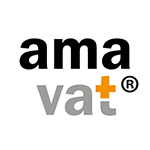Belgium adopts the ECJ’s position on unfinished invoices
Belgium has implemented the recent ECJ jurisprudence regarding the right to subtract VAT on invoices with missing details.
On the 12th October, 2017 the authorities published a circular letter 2017/c/64 summarising their clarification of recent ECJ decisions concerning the conditions under which a taxable person may exercise their right to subtract VAT in cases of irregular invoices.
Created on this circular, Belgian Tax Authorities have relaxed their position on invoice requirements by stating that, in cases of non-compliant invoices, the tax administration require to perform a case-by-case analysis taking into account the subsequent aspects:
- If the substantive requirements that give the right to subtract have been met;
- If credit notes have been supplied to correct the irregular invoices; and
- The analysis of supplementary documents related to the invoice, such as contracts, order forms, emails, etc.
During the audit, all additional information requires to be submitted by complying with the format and periods established by the authorities. Similarly, the right to subtract VAT can be denied if the authorities consider that the taxpayer knew or should have known that a transaction was subject to fraud.
ECJ jurisprudence on this topic
The recent ECJ position about this topic states that the right of deduction must be allowed when VAT is paid in the course of economic activities, as long as the essential requirements have been met. Hence taxpayers may exercise their right to subtract VAT, even if the invoices do not meet certain formal requirements. See ECJ cases listed below:
- Barlis Case C-516/14
- Pannon Case C-368/09
- Petroma Transports Case C-271/12
- Senatex GmbH Case C-518/14
Specifically, these judgements state that Tax Authorities cannot refuse the right to deduct only because some of the invoice requirements are not met when these authorities have sufficient information to ascertain that the substantive conditions to exercise the right to deduct were satisfied. Consequently, the authorities cannot limit themselves to examining the invoice itself, but require to also analyse the supplementary information provided by the taxpayer.
Additionally, these judgements also emphasised the value of the credit notes by recognising its retroactive effect when they are used to correct invoices with missing details.
amavat® provides a one-stop-shop solution for VAT Compliance within Europe. We assist clients with a single point of contact that speaks their language and handles all VAT related issues with a standard and cost efficient approach.
If you have any queries or questions, please do not hesitate to contact amavat®.
To find out more information please visit www.amavat.eu


































